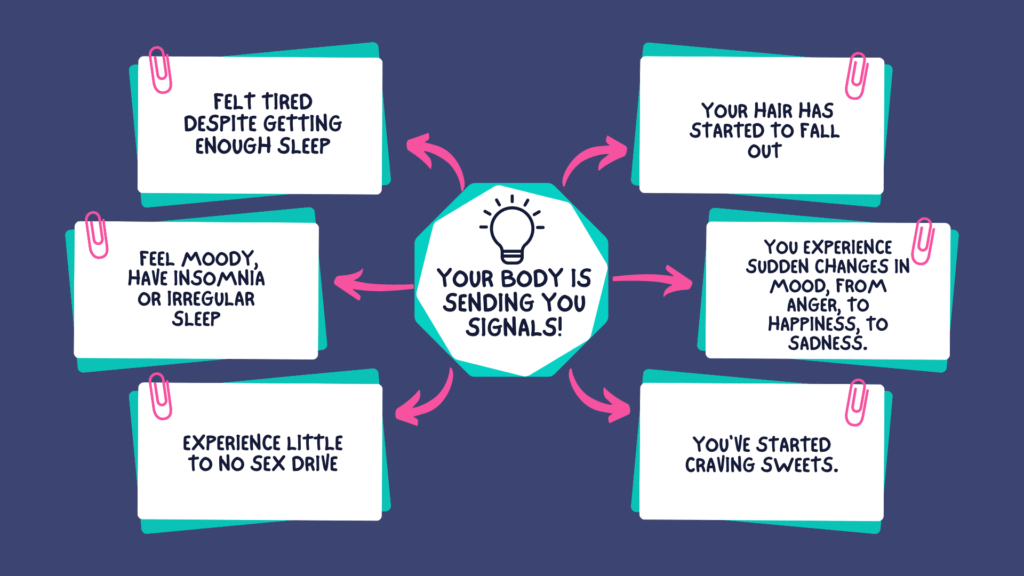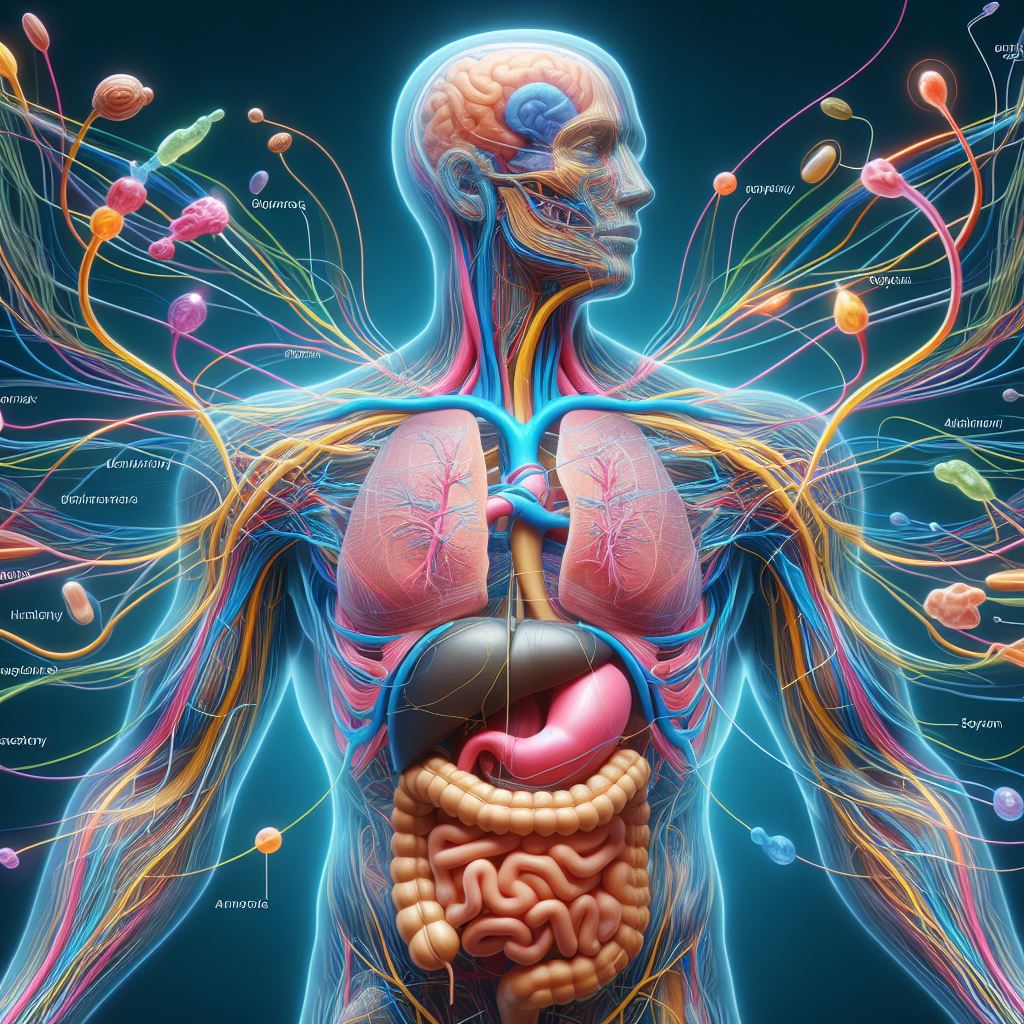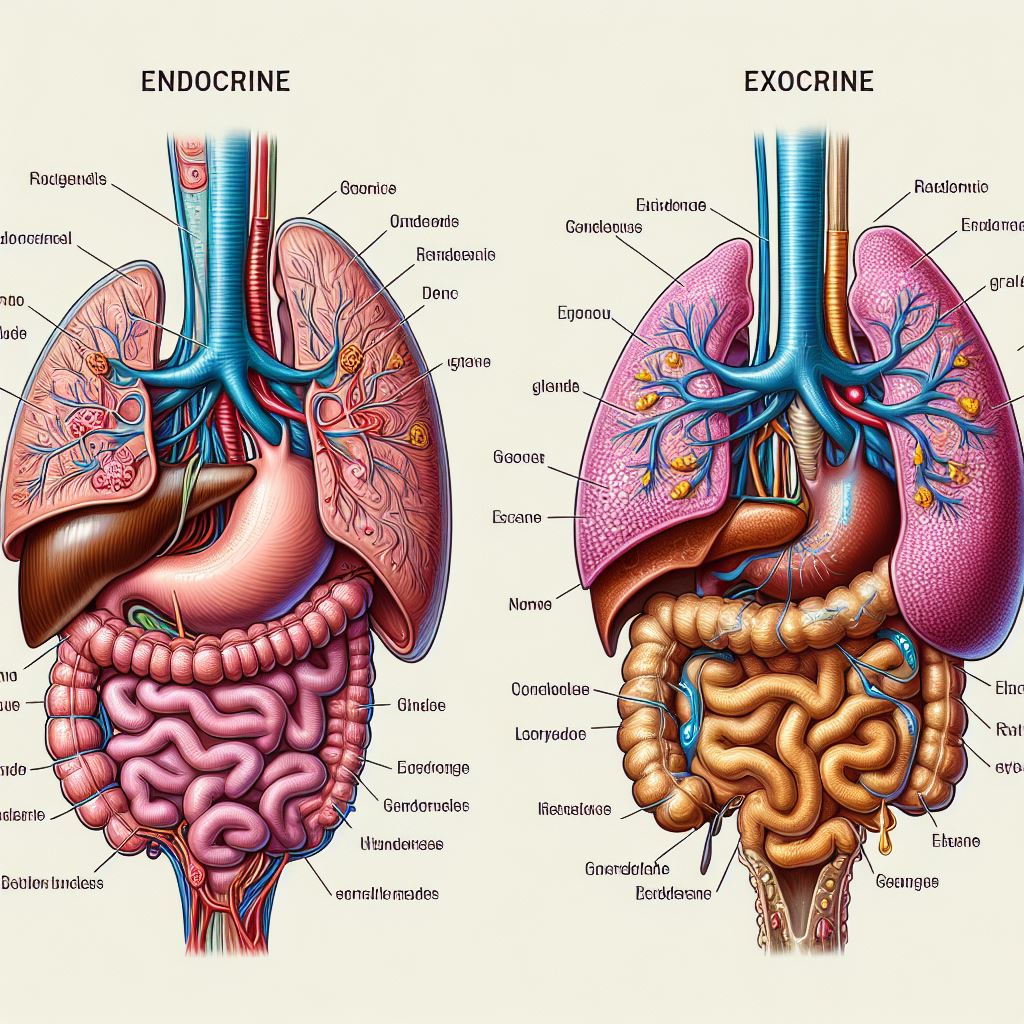
The Messengers of Your Health
Do you ever feel inexplicably tired despite getting enough sleep? Or perhaps you’ve noticed sudden changes in your mood, from anger to happiness to sadness? These signals might be your body’s way of telling you that something is amiss, something that goes beyond diet and sleep.
Your body is sending you signals – SOMETHING IS WRONG!

Hormones are the silent orchestrators of your health, the chemical messengers that dictate various bodily functions. While we often associate hormonal changes with puberty, pregnancy, and menopause, more people are experiencing hormonal imbalances outside of these life stages.
Think of hormones as the glue that holds your body’s processes together. In a loving marriage, everything functions harmoniously. Similarly, when your hormones are in balance, your body hums along smoothly. However, even a minor disruption can throw your system into chaos.

The understanding of hormones has evolved over centuries. Ancient healers recognized that certain organs contained substances that positively influenced physical and spiritual health. Early doctors even used organ extracts, including testis, spleen, and liver extracts, to treat corresponding organs. While this approach faced criticism, it marked the early stages of hormone therapy.

Charles-Édouard Brown-Séquard | French physiologist | Britannica
One of the pioneers in this field was Charles-Édouard Brown-Séquard, a French physiologist who created a sensation in 1889. He claimed to have discovered the “elixir of youth” by injecting himself with an extract derived from dog testes. However, this temporary boost in vitality ultimately fell short of the promise of eternal youth.
Understanding Hormones
The science that studies hormones is called endocrinology. It’s a relatively recent branch of science, and many aspects remain unexplored. Hormones play a role in regulating numerous bodily functions, including:
- Metabolism: Insulin regulates blood sugar levels, ensuring your body has the energy it needs.
- Growth and Development: Growth hormones facilitate growth and development, which is crucial for children and adults.
- Water and Electrolyte Balance: Hormones help maintain the body’s water and electrolyte levels.
- Hunger and Appetite: Hormones influence your appetite and satiety.
Hormones are like messengers sent to report on your body’s status. When a hormone is deficient, it disrupts the function of the corresponding organ, indirectly affecting other hormones and, eventually, the entire body.

There are two types of hormones:
- Endocrine Hormones: These are produced within endocrine glands and travel through the bloodstream. Examples include insulin and thyroid hormones.
- Exocrine Hormones: Exocrine glands expel waste and undesirable materials. For example, tear ducts release tears, and mammary glands produce milk.
Interestingly, any cell can produce hormones under specific conditions. Even malignant cells can sometimes produce hormones, contributing to metastasis, the spread of cancer to other organs.
Key Hormone-Producing Glands
Several glands in your body are responsible for hormone production:
- Hypothalamus: Regulates various hormonal processes.
- Hypophysis (Pituitary Gland): Often referred to as the “master gland,” it controls other glands in the endocrine system.
- Thyroid and Parathyroid Glands: Regulate metabolism and calcium levels in the body.
- Thymus: Plays a role in the immune system.
- Adrenal Glands: Manage stress within the body.
- Ovaries and Testes: Responsible for reproductive hormones.
- Pancreas: Regulates blood sugar levels.
Among these, the thyroid glands are particularly vital. They produce hormones rich in iodine, impacting various functions, including metabolism, heart rate, and nervous system development.
Key Hormones and Their Functions
Here are some of the most important hormones and their functions:
- Estrogen: Primarily produced in the ovaries, it plays a crucial role in female reproductive development, menstrual regulation, and more. Men also produce small amounts of estrogen.
- Testosterone: The primary male reproductive hormone, responsible for male secondary sex characteristics. Women produce small amounts in the ovaries and adrenal glands.
- Cortisol: Known as the “stress hormone,” it regulates stress responses and metabolism. Produced mainly by the adrenal glands.
- Serotonin: Acts as both a hormone and neurotransmitter, influencing mood, appetite, and sleep. Produced in the brain by glands like the hypothalamus and pituitary.
- Dopamine: Coordinates body movement and affects feelings of satisfaction. Also plays a role in blood vessel dilation, urine production, and insulin regulation.
Finally, hormones are the messengers of your health, regulating countless bodily functions. When these messengers go awry, they can wreak havoc on your well-being. Understanding the importance of hormonal balance is essential for maintaining a healthy, happy life.
Maintaining hormonal balance isn’t just about feeling good; it’s about ensuring your body functions optimally. So, listen to your body, pay attention to those signals, and act quickly when needed. After all, a harmonious balance of hormones is the key to a healthier and happier you.
Elena
References
- Cleveland Clinic – Hormones: What They Are, Function & Types
- Johns Hopkins Medicine – The Endocrine System and Hormones
- National Institutes of Health – Hormones and Metabolism
Disclaimer
This article is for informational purposes only and does not replace professional medical advice, diagnosis, or treatment. Always consult with your doctor or qualified healthcare provider regarding any questions you may have about hormone health, supplements, or therapies.
About the Author
Elena is an educator with over 20 years of experience guiding young people and supporting their well-being. She writes about health, hormones, and lifestyle choices with the goal of offering clarity, balance, and practical insights for everyday living.
References
- Cleveland Clinic – Hormones: What They Are, Function & Types
- Johns Hopkins Medicine – The Endocrine System and Hormones
- National Institutes of Health – Hormones and Metabolism
Disclaimer
This article is for informational purposes only and does not replace professional medical advice, diagnosis, or treatment. Always consult with your doctor or qualified healthcare provider regarding any questions you may have about hormone health, supplements, or therapies.
About the Author
Elena is an educator with over 20 years of experience guiding young people and supporting their well-being. She writes about health, hormones, and lifestyle choices with the goal of offering clarity, balance, and practical insights for everyday living.
